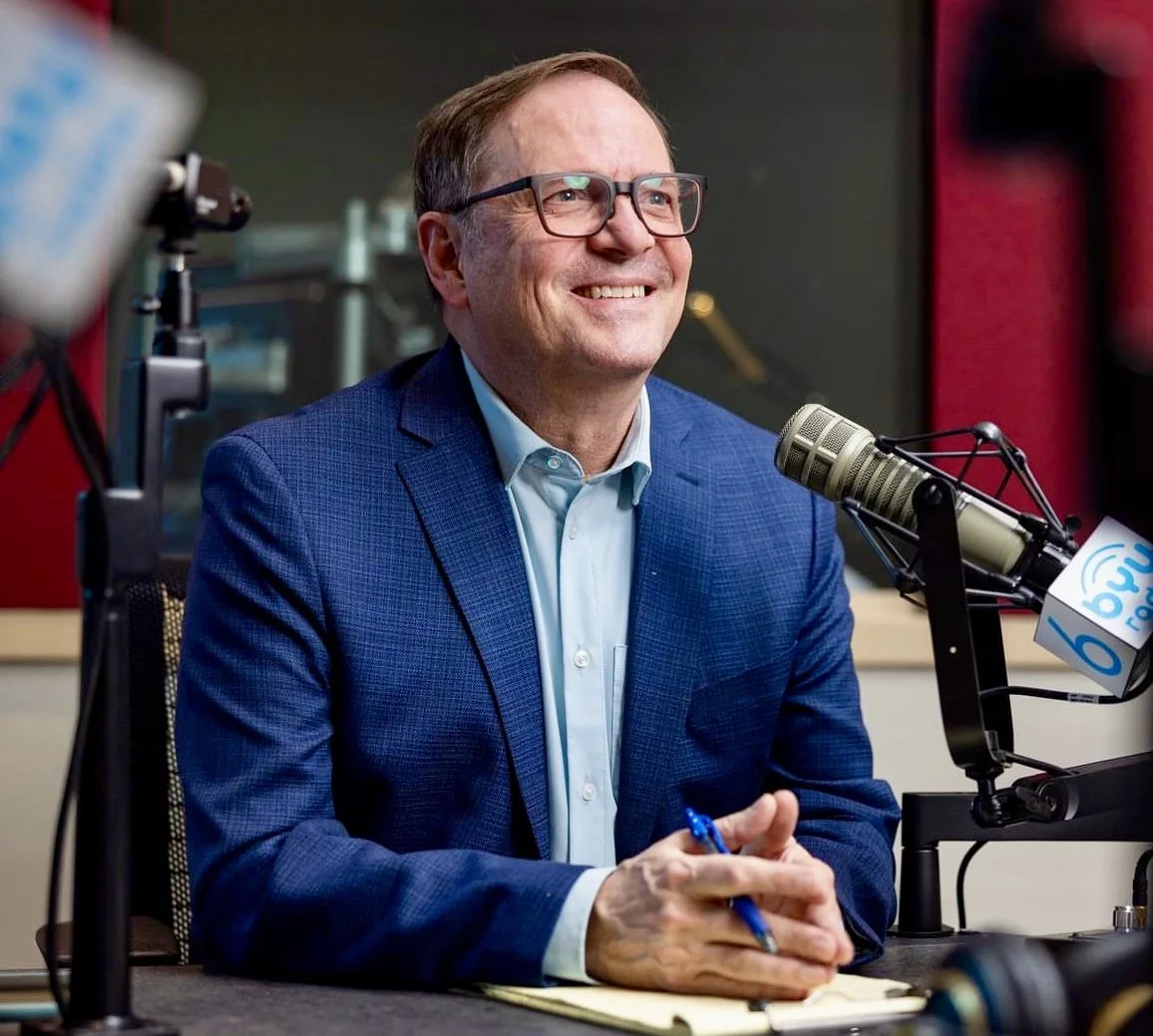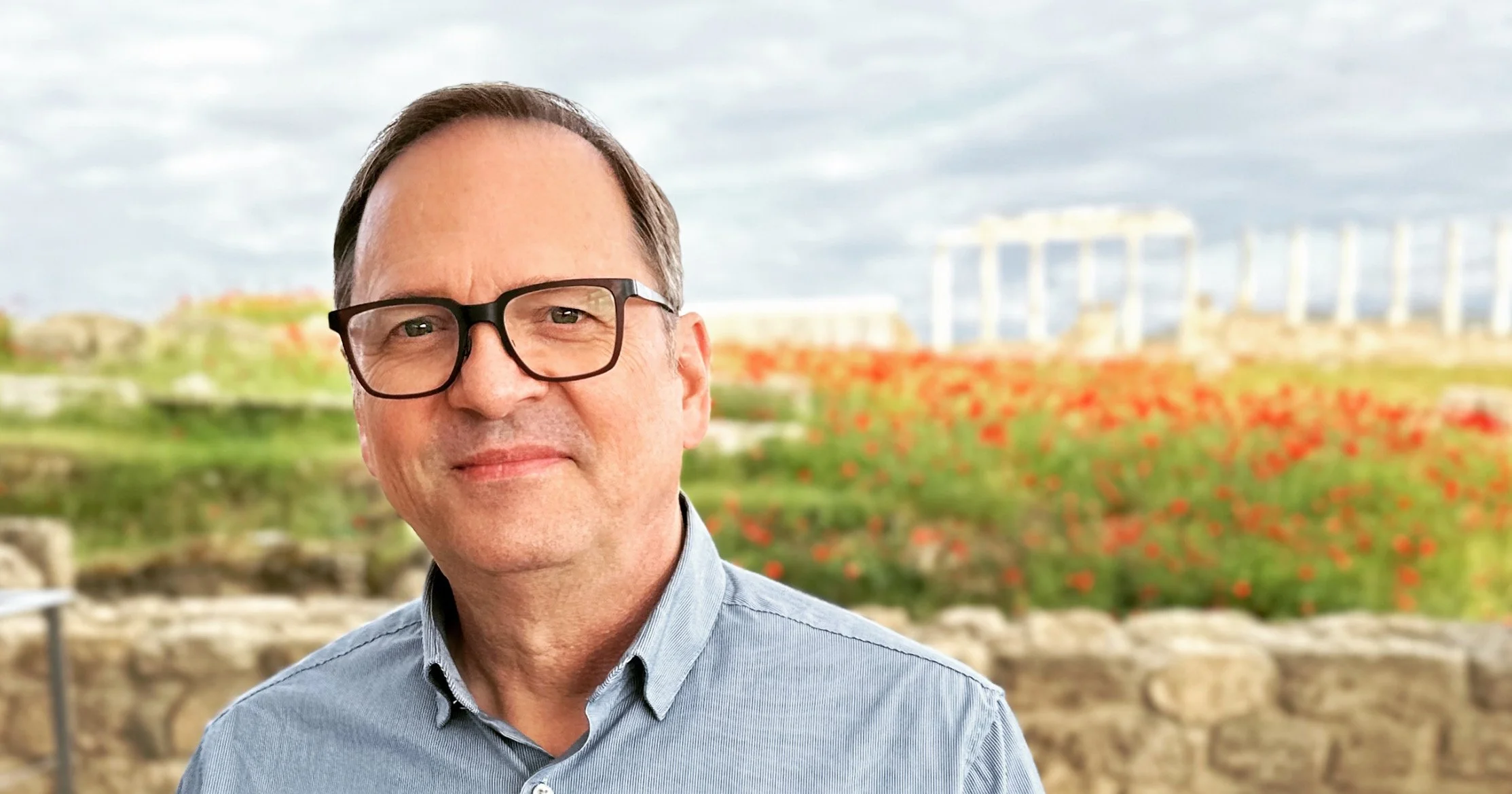“Dear Friends, In the interest of relating to people I love, I do have something I’m sharing with people one-to-one, no big Facebook announcement. I’ve had a strong spiritual prompting the last year and a half to start coming out to people—so that’s what this note is, me coming out to you as a gay person.” So began the personal letter that Steven Kapp Perry felt compelled to share with close friends, after 35 years of marriage to his wife Johanne. Knowing there’d likely be obvious questions, Steve’s letter addressed them: “(It’s) something I’ve always known since nearly my earliest memories, but sort of squashed down as something to deal with later as I grew up. I do happen to be happily married to the only woman I’ve ever loved and had some attraction for—we can’t explain that—maybe just a miracle? So, nothing is really changing for us, but it has become important for me to invite people we love into our circle...”
Steve was relieved his letter was largely received by friends with grace and love. While some may question his need to come out after all this time, and especially as he was choosing to stay married to Johanne, for Steve, it was imperative that people he loved fully know and love him.
An award-winning playwright, songwriter and broadcaster, Steve now works for BYU Broadcasting as the host of the “In Good Faith” podcast and as an announcer on Classical89.org. Many have benefitted from the musical talents of his family line, and Steve affirms that his mother, renowned composer Janice Kapp Perry, is “just as sweet as you think she’d be.”
Growing up in the Perry’s very musical home, Steve sensed something about him was different and wondered why it felt painful to go on dates. “I think I just buried it; some things felt too hard to know back then.” Steve was born in a different time, within just a few months of the moment BYU’s President at the time Ernest Wilkinson delivered his infamous quote admonishing anyone with homosexual tendencies “to leave the university immediately” so that others may not “be contaminated by your presence.” Ironically, the building named for that president at BYU now hosts the Office of Belonging, where Steve consulted for creating an inclusion event for LGBT student employees and their supervisors at BYU Broadcasting.
As a youth, Steve understood being gay as something not to talk about, that it wouldn’t be safe to share. He’s grateful for moments when God spared him the shame so many others have felt while reading past teachings and edicts. Upon reading President Spencer W. Kimball’s The Miracle of Forgiveness at age 16, when Steve came to the chapter where the author calls homosexual people “abominations, perverts, crimes against nature, etc.,” Steve says, “a little voice in my head spoke up—not audibly, but just the way there is suddenly knowledge in your head that you didn’t put there?—and it said, ‘He doesn’t understand, and this is not you’.”
He again heard that voice when the exclusion policy was announced in 2015. Steve says, “The minute I heard it on the radio, that same voice or knowledge was there and said, ‘This is wrong and it will not stand.’ So I tried not to worry about it and was relieved when it was altered in 2019.” Steve explains, “Since our leaders don’t yet have any doctrine about why God sends us LGBTQ people to earth as we are, that the Lord sometimes sends his Spirit to save us from harm, even if well-intentioned.”
Steve is ever grateful for the guiding hand that nudged him toward marrying Johanne after several years of close friendship. In the coming out letter Steve shared with friends, he says, “When we did fall in love after years and years of friendship, I think I naively thought that I was just a slow bloomer, but while our love is very real, my same-sex feelings never went away.”
The two met as performers in BYU’s Young Ambassadors program and spent many long hours bonding on bus rides across the nation, and while performing together in firesides and in Steve’s family’s musical, “It’s a Miracle.” They married when Steve was 28 and Johanne was 24, and had their first baby within a year. Steve and Johanne have since raised their four children (Emily--who is now married to Skyler, Jason--who is married to Marisa, Alex and Ben) in Utah, and now enjoy two grandchildren. They also laugh that their youngest child, Ben, has continued the musical legacy having received his Masters from the Boston Conservatory at Berklee in Choral Conducting, after also once being their child who shouted, “Everyone stop singing! There’s too much music in this house!” In their young adult years, Steve came out to his kids individually at a time that felt appropriate, and says they were all great about it. He was touched his daughter-in-law said, “This doesn’t change how I feel about you,” and knew he was safe with his son-in-law, who was already an open ally who had marched in Pride parades in Salt Lake. Only one of the four Perry children is still involved with the LDS faith, but Steve says they all are respectful of his and Johanne’s continued activity in the church.
Leaders have fluctuated in response over the years as Steve has felt comfortable opening up about being gay. The first bishop he told, about 15 years ago, immediately released Steve from his calling in the Young Men’s presidency in his ward, saying he couldn’t be around children. Steve says, “I’ve since learned that this is a common misunderstanding, but knowing they thought I was a pedophile triggered years-long major depression. This was especially hard since at the time I had my three boys in the YM program or just about to go into it.”
Since then, he’s witnessed progress. When he and Johanne moved from Cedar Hills back to Provo in 2016, he told his new bishop who only replied, “Ok, fine, but will you accept a calling?” Six months later, that bishop called Steve as one of his counselors. Later when he came out to his stake president, he thanked Steve for trusting him and said, “We are so lucky to have your experience on our high council.” While Steve is often tapped to help with the music, which has included directing a regional choir for general conference, Steve has most recently served in his ward’s Elders Quorum presidency and with Johanne as members of their area Communications Council. When asked to teach an Elders Quorum lesson recently, Steve felt prompted to come out, to which he thought “that’s weird.” But heeding the counsel of the stake president who had that very morning said the stake needs to do better at understanding LGBT members, Steve opened up to his quorum. He’d given his quorum president a heads up, and the president opened the meeting reading the lyrics to the primary song, “I’ll Walk With You.” Steve says this “rolled out the red carpet and just felt right” for the rest of what he shared. Since, he’s had people thank him for his vulnerability and had parents come to him for advice with their own kids.
Steve shares that his need to come out more widely was a life-saving, or at least mental health-saving decision. Several years ago, he began having anxiety and panic attacks at church, and only church. He explains, “Like I’d be in bishopric meeting and suddenly I knew my body was going to stand up and leave the room, so I made excuses as I left and stood outdoors in the breeze and loosened my tie and just breathed… This was causing me to be dangerously depressed, more than the usual low-level depression I’ve always dealt with—not hard to guess why, now that I think about it. So, Johanne and I with a counselor decided that since the box I felt around me was slowly shrinking, that I would just step out of the box.”
The panic attacks stopped as soon as Steve started to come out to close family and friends, and eventually to people he worked with, one by one at a time that felt right. He says, “It’s not that they needed to know, but I needed to know that they knew and that we were still good.” Steve often hears the phrase, “You can never know you are truly loved until you share who you truly are,” repeat in his mind, and also wanted to add his voice to the movement that visibility and representation matter. He feels, “Both our society and our church need to know just how many LGBTQ people are in every congregation and every class and quorum and know that it’s not ‘Us vs. Them’ somehow, but that there is only ‘Us’.”
Eventually, Steve took the initiative to organize an LGBTQ inclusion event at BYU Broadcasting in 2021, during which he introduced a panel of students and employees who are out who all shared their experiences. It was a packed crowd with an overwhelmingly positive response, something that once seemed impossible back when Steve was a Young Ambassador student on that very same campus.
Every time Steve shares his story (which he has also done on Richard Ostler’s Listen, Learn and Love podcast), he and Johanne are quick to recommend that others don’t take their mixed-orientation marriage as a prescription of how to live, recognizing “that usually leads to disaster and broken hearts in about 70% of the cases, from what we’ve read.” But whenever he shares his personal experience, Steve reaffirms that he and Johanne “married for love and are staying married for love. Each of us has offered the other to dissolve the marriage on different occasions, if that was the best thing for the other's happiness, but neither of us has ever wanted to take the other up on that offer. We just are each other’s person.”
(Join us next week when Johanne Perry shares her side of the story.)



















